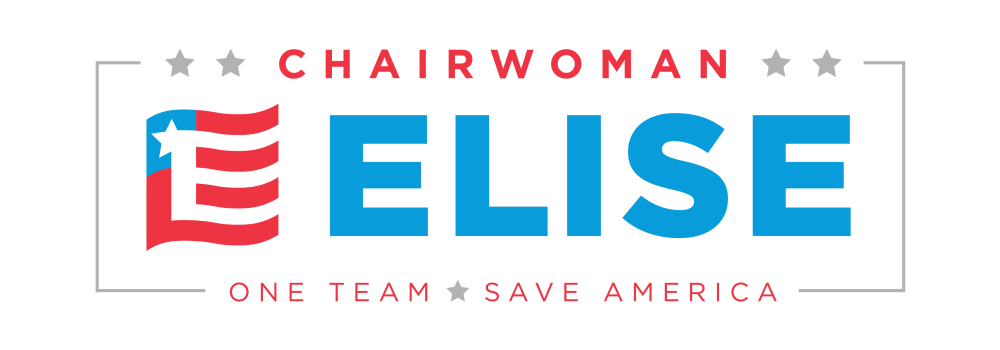4:55 PM EST December 21, 2020, 7 News Staff and Associated Press
WASHINGTON, D.C. (WWNY) – Congressional leaders have hashed out a massive, year-end catchall bill that combines $900 billion in COVID-19 aid with a $1.4 trillion omnibus spending bill and reams of other unfinished legislation on taxes, energy, education and health care. The House of Representatives approved the bill on Monday night, sending it over to the Senate for a vote.
North Country Congresswoman Elise Stefanik announced Monday her vote in favor of the package.
“Throughout the past several months, I have consistently advocated for direct federal support for our hospitals and community health centers, small businesses, farmers, schools, individuals and families who have faced significant challenges in the wake of the COVID-19 pandemic,” said Stefanik in a prepared statement. “I have spoken with countless local elected officials, community leaders, and constituents to identify their specific needs and raise their issues at the federal level. As a result, this package that I will vote in favor of today prioritizes small businesses and families who need relief. After months of long negotiations, and Speaker Pelosi repeatedly refusing to come to the negotiating table, these important legislative results should have happened months ago. I remain focused on delivering results to the North Country that address this public health crisis and fuel a strong economic recovery.”
Here are some highlights of the measure with overall funding amounts and specific amounts for some but not necessarily all initiatives.
Unemployment insurance ($120 billion).Revives supplemental federal pandemic unemployment benefits but at $300 per week — through March 14 — instead of the $600 per week benefit that expired in July. Extends special pandemic benefits for “gig” workers and extends the maximum period for state-paid jobless benefits to 50 weeks.
Direct payments ($166 billion).Provides $600 direct payments to individuals making up to $75,000 per year and couples making up to $150,000 per year — with payments phased out for higher incomes —- with $600 additional payments per dependent child.
Paycheck Protection Program ($284 billion).Revives the Paycheck Protection Program, which provides forgivable loans to qualified businesses. Especially hard-hit businesses that received PPP grants would be eligible for a second round. Ensures that PPP subsidies are not taxed.
Vaccines, testing, health providers ($69 billion).Delivers more than $30 billion for procurement of vaccines and treatments, distribution funds for states, and a strategic stockpile. Adds $22 billion for testing, tracing and mitigation, $9 billion for health care providers, and $4.5 billion for mental health.
Schools and universities ($82 billion).Delivers $54 billion to public K-12 schools affected by the pandemic and $23 billion for colleges and universities; $4 billion would be awarded to a Governors Emergency Education Relief Fund; nearly $1 billion for Native American schools.
Rental assistance ($25 billion).Provides money for a first-ever federal rental assistance program; funds to be distributed by state and local governments to help people who have fallen behind on their rent and may be facing eviction.
Food/farm aid ($26 billion).Increases stamp benefits by 15% for six months and provides funding to food banks, Meals on Wheels and other food aid. Provides an equal amount ($13 billion) to farmers and ranchers.
Child Care ($10 billion).Provides $10 billion to the Child Care Development Block Grant to help families with child care costs and help providers cover increased operating costs.
Postal Service ($10 billion).Forgives a $10 billion loan to the Postal Service provided in earlier relief legislation.
OMNIBUS APPROPRIATIONS ($1.4 TRILLION)
The omnibus measure wraps 12 spending bills into one and funds agency operating budgets through Sept. 30 of next year. It combines Democratic priorities such as a $12.5 billion increase over existing budget limits for domestic programs while cutting Immigration and Customs Enforcement detention and removal costs by $431 million. COVID-19 has contributed to sharply lower costs. Republicans supported sustained defense spending, energy provisions and longstanding bans on federal funding of abortion. The measure also provides President Donald Trump with a last, $1.4 billion installment for a wall on the U.S.-Mexico border.
The measure also contains more than 3,000 pages of miscellaneous legislation, including:
Surprise medical billing.Includes bipartisan legislation to protect consumers from huge surprise medical bills after receiving treatment from out-of-network providers.
Community health centers.Reauthorizes, for three years, funding for community health centers and extends a variety of expiring health care policies.
Tax extenders.Extends a variety of expiring tax breaks, including lower excise taxes of craft brewers and distillers. Renewable energy sources would see tax breaks extended, as would motorsport facilities, and people making charitable contributions. Business meals would be 100% deductible through 2022.
Water projects.Includes an almost 400-page water resources bill that targets $10 billion for 46 Army Corps of Engineers flood control, environmental and coastal protection projects.
Clean energy.Boosts “clean energy” programs like research and development, efficiency incentives and tax credits. Phases out “superpollutant” hydrochlorofluorocarbons.
Education.Includes a bipartisan agreement to forgive nearly $1.3 billion in federal loans to historically Black colleges and universities and simplify college financial aid forms.
Horse racing “doping.”Adds bipartisan legislation by Majority Leader Mitch McConnell, R-Ky., to create national medication and safety standards for the horse racing industry as lawmakers move to clamp down on the use of performance-enhancing drugs that can lead to horse injuries and deaths.
New Smithsonian museums.Establishes the Women’s History Museum and the National Museum of the American Latino as new Smithsonian museums located near the National Mall.
Pipeline safety.Folds in pipeline safety legislation reauthorizing operating grants and safety standards for oil and gas pipelines.
Aircraft safety.Adds, after the scandal involving Boeing 737 MAX crashes, legislation to beef up the Federal Aviation Administration’s aircraft certification process. Addresses human factors, automation in the cockpit, and international pilot training while authorizing nearly $275 million over the next five years to carry out the legislation.
Intelligence programs. Reauthorizes intelligence programs for 2021.
You can read this article in full here: www.wwnytv.com





